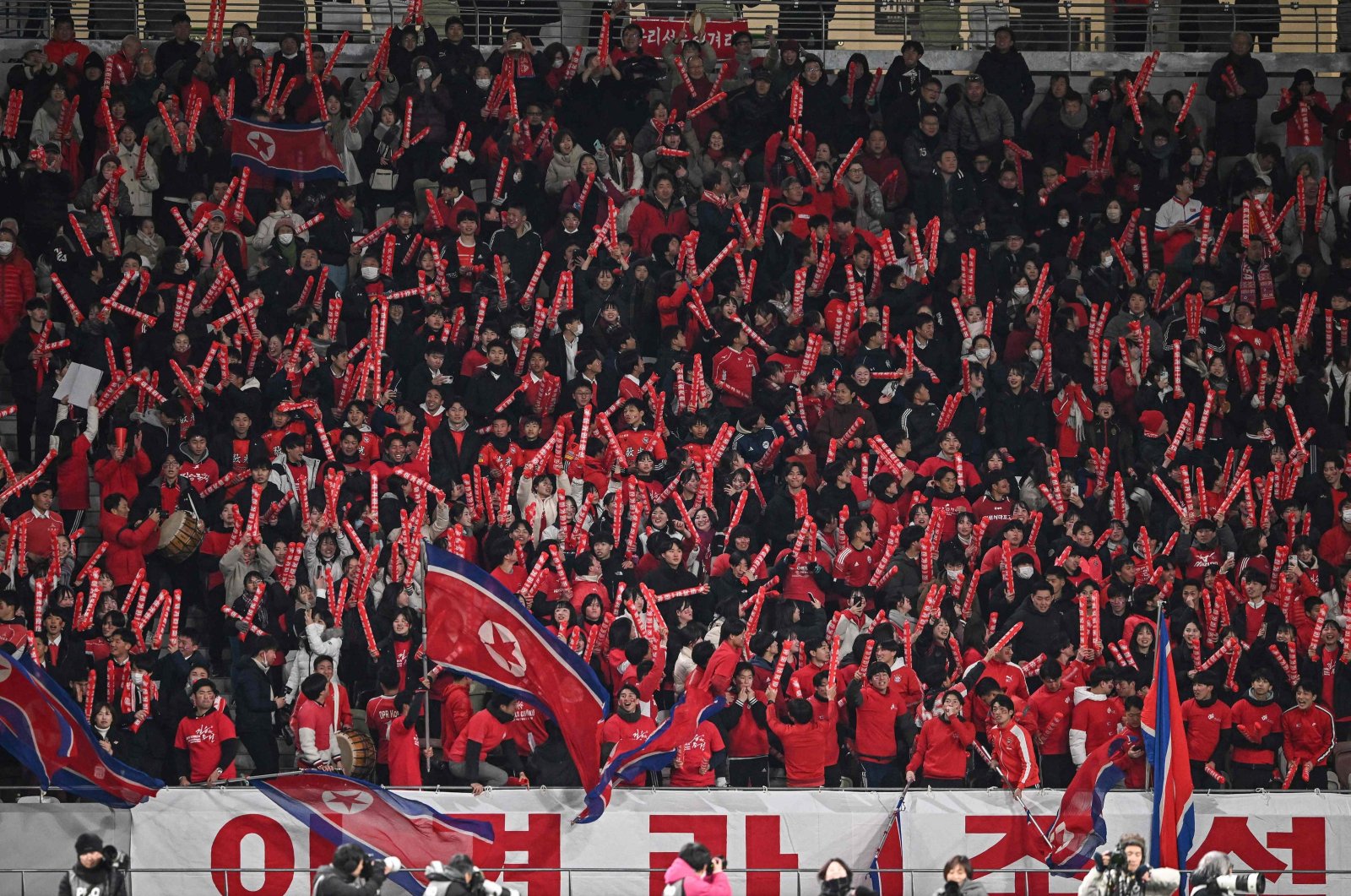
Japan has issued a stern warning to football fans, advising them against traveling to "hostile" North Korea for the upcoming World Cup qualifier in Pyongyang.
The Tokyo Foreign Ministry has "strongly requested the general public to refrain" from attending the match on March 26, which marks the first meeting between the two sides in North Korea since 2011.
"As you know, North Korea takes a hostile view of Japan and travel is not recommended for the general public," it said on X, formerly known as Twitter.
Japan and North Korea play in Tokyo on Thursday as part of qualifying for the 2026 World Cup before the return fixture next week.
Japan's long-standing advice for its nationals is not to travel to North Korea, but it does not expressly forbid them from doing so. The two countries do not have diplomatic relations.
It was unclear how many fans, if any, would try to travel. They would need a North Korean visa to do so.
However, Japanese broadcaster NHK reported that 14 government officials and a small number of media outlets will accompany the Japan team to the match.
Last month, the first leg of their women's playoff for the Paris Olympics was switched from the North Korean capital to neutral ground in Saudi Arabia.
Relations have long been dogged by issues including compensation for Japan's brutal occupation of the Korean peninsula between 1910 and 1945 and, more recently, by Pyongyang's firing of missiles over Japanese territory.
The abduction by North Korean agents of Japanese citizens in the 1970s and 1980s – forced to train spies in Japanese language and customs – has also long been a major point of contention.
Thursday's match in Tokyo was expected to see a sizable contingent of North Korean supporters from among Japan's long-standing ethnic Korean community of about 300,000 people.
Most are descendants of civilians taken from their homes during Japan's colonization of the Korean peninsula.
